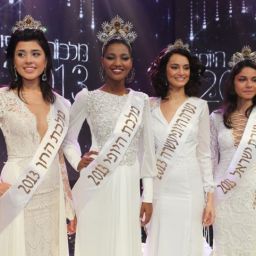[youtube=http://www.youtube.com/watch?v=s-cU4S4lDH0]
When is something a quotation or a reference and when is it a sample that needs to be licensed? According to a recent Sixth Circuit decision regarding Atomic Dog, Bridgeport Music v. BMG Recordings, No. 07-5596, November 4, 2009 (no official citation yet), a copyright violation can be found when no licensing fee is paid for
use of the phrase “Bow wow wow, yippie yo, yippie yea” (the “Bow Wow refrain”), as well as use repetition of the word “dog” in a low tone of voice at regular intervals and the sound of rhythmic panting
One of the many interesting aspects about this case is that George Clinton, the performer and co-author of the song, has no dog in this fight, despite the fact that he is so closely tied to the song. As described in the excellent documentary, Parliament Funkadelic: One Nation Under a Groove, P-funk and George Clinton lost the rights to their own music. (On a tangent: I highly recommend this documentary (shown usually during Black History Month on PBS) — and not just because Shock G appears to be interviewed while completely off his gourd).
But the issues about copyright explored by the Sixth Circuit don’t touch on the songs larger cultural significance, instead viewing the importance of the song through an economic lens:
“Atomic Dog” “is an anthem of the funk era, one of the most famous pieces from that whole era . . . one of the most famous songs of the whole repertoire of funk and R&B.” In addition to the song’s continuing popularity on its own, “Atomic Dog” and other works by Clinton and Parliament-Funkadelic are said to have influenced many contemporary rap and hip hop artists, with the most notable being the style of rap popularized by West Coast rappers such as Dr. Dre, Ice Cube, Snoop Doggy Dogg, and Coolio. [note: The court couldn’t have left it at three. Really!?!] …
Testimony at trial confirmed that “Atomic Dog” and other works by Clinton are among the most popular works sampled by rap and hip hop artists. According to an expert musicologist, the Bow Wow refrain “is one of the most memorable parts of the song” and is often licensed by itself.
…
UMG failed to introduce any evidence that would have explained why the songwriter chose to include elements of “Atomic Dog” to honor George Clinton, nor was the purported tribute acknowledged in the credits or liner notes to the album.
Two recent books explore the interaction between intellectual property (mostly copyright) and hip hop culture — Adam Haupt’s Stealing Empire: P2P, Intellectual Property and Hip-Hop Subversion and Richard Schur’s Parodies of ownership : hip-hop aesthetics and intellectual property law. Both books explore and apply Henry Louis Gates’ idea of the importance of signifyin’ — a metaphor for textual revision — located in African-American culture and globalized via hip-hop.
Stealing Empire is valuable for its analysis of the impact IP regimes on South African culture. And it is therefore useful for a reader with a literary / cultural / media studies perspective; the legal analysis is less useful because it does not distinguish between differing jurisdictions.
Parodies of ownership : hip-hop aesthetics and intellectual property law is a excellent edition to both the fields of critical race theory and cultural studies, and adds greatly to the ongoing discussions of power and control regarding intellectual property. This book is yet another book published this year that is highly recommended.
One of the most intriguing aspects of this book is Schur’s suggestions for erasing the invisibility aspect of intellectual property law:
[Judge Richard] Posner [and others] conceive of originality, fair use, and transformative use as transcultural and color-blind strategies to regulate the circulation of texts, including raced texts. [They] do not connect texts to specific genres, to cultural traditions, or to how popular culture’s taste [] derive, in part, from interactions with America’s racial history. (144)
He suggests specific challenges/suggestions to intellectual property law (especially in the U.S.), including mentioning fan culture(s):
African American culture has engaged in a rigorous discussion about the right to copy (i.e., sampling versus biting) …. [but law has] adopted color-blind rhetoric [so] such cultural distinctions have not been judicially sanctioned even if they structure how audiences understand hip hip texts.
…
Attempting to remedy the inefficiencies or absurdities of intellectual property law without referencing its complicity in the de facto and probally de jure transfer of wealth from African Americans to white Americans is unlikely to prove successful. Resolving other cultural/economic conflicts, whether they involve fan fiction or unauthorized music trading, probably requires engaging with histories of discrimination and power inequalities, not simply a slight tweaking of abstract legal formulas. (179)
But both books are sans any pictures (let alone an audio or video accompaniment) leaving the analysis missing the “quotation” that is so needed here to provide a complete picture of the richness of the music at issue. I’m not sure that the Pokémon vid above is the best illustration, but if you didn’t know Atomic Dog, wouldn’t it better help you understand what is at issue?
And that brings us back to where we started with George Clinton and Atomic Dog — when is something a quotation or a reference and when is it a sample that needs to be licensed? Or as Richard Schur states in Parodies of Ownership,
the question of who owns the imaginary domain out of which African Americans form cultural identity remains unanswered (23)




